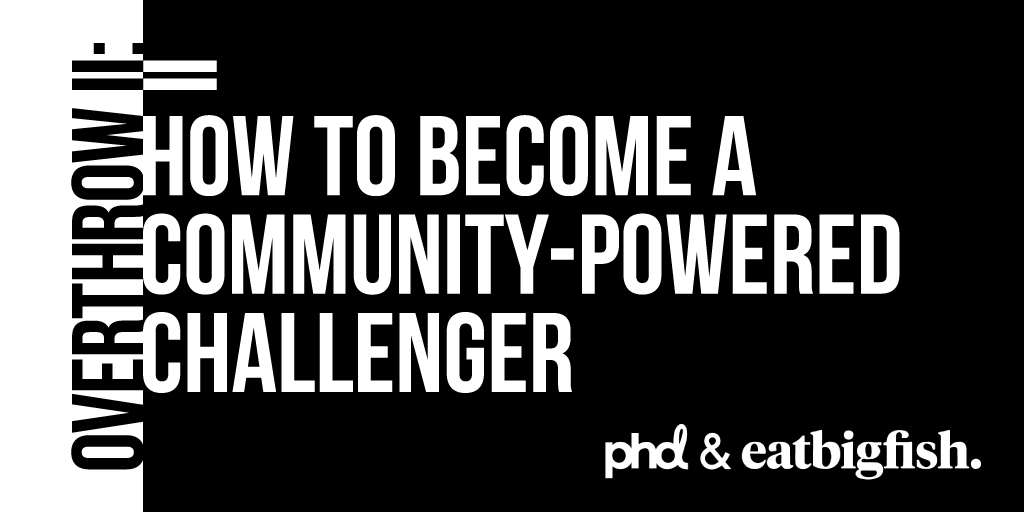I’ve struggled with depression and anxiety intermittently for much of my adult life. Most of the time it has very little if any impact on my day-to-day life. At other points, it has completely debilitated me. On more than one occasion I’ve had to take time off work to focus on getting better.
I’ve also struggled with sinusitis intermittently for much of my adult life. Most of the time it has very little if any impact on my day-to-day life. At other points, it has completely debilitated me. On more than one occasion I’ve had to take time off work to focus on getting better.
These paragraphs are essentially identical. But for some reason one is easy to write and to read, whereas the other feels like a confession to write and an invasion of privacy to read.
This is because mental wellbeing remains an aspect of health that we find uncomfortable to talk about. It’s harder to see, harder to diagnose, harder to treat, harder to understand. The cruel irony about mental wellbeing is that most conditions worsen when left undiscussed or bottled-up. Our very own attitude towards these issues often makes it worse.
To compound the problem, the stigma of poor mental health appears to be stronger among certain social groups. Research has shown that men and those from BAME ethnic groups are both significantly less likely to access mental health treatment. Much less than Women and those with White British ethnicity. The repercussions of this make for harrowing reading:
“Three out of four suicides in the UK are men.” – Movember
This is why campaigns like Movember are so important. I recently joined an OMG Movember Panel on the topic of men’s mental health. We discussed what we can do as individuals, colleagues and agencies to tackle the stigma and promote better mental wellbeing.
Following the session, four themes stayed with me.
Mental wellbeing impacts us all
One of the most encouraging aspects of the discussion was the wide range of backgrounds, specialisms and experiences represented. Early on in my career, I had assumed that mental health problems were a sign that there was something wrong with me. That people at work would think less about me if they knew ‘the real me’. To hear from Dan Clays (OMG UK’s CEO) and the rest of the group talk so openly was a powerful reminder that struggling with mental health problems doesn’t make you weird or bad at your job or any less capable of excelling in your career. In fact, it actually makes you rather normal. One in six of you reading this article are likely to have experienced a common mental health problem in the past week. That’s as many who are likely to have watched ‘I’m A Celebrity’ live on ITV.
There’s no one solution to improving your mental wellbeing
We also discussed the various coping mechanisms that we’ve each found helpful over the years. From meditation to physical exercise, better diet to medication, talking therapy to time off work. As we’re all wired differently, we can’t expect the same solution to work for every person on any given day. I’ve always liked the image of a mental health toolkit. For most jobs around the house I can get by with a trusty screwdriver but for others, it’s time to crack out the power drill. Of course, there are also those jobs that are best left to the professionals.
Similarly, I’ve found that there are certain things in my mental health toolkit I use most weeks such as mindfulness meditation. There are others such as talking therapy that I know I can turn to if I’m going through a difficult period. Every toolkit will look different, just as it does for every flat or house. The important thing is having one that works for you.
We have more work to do as an industry
Studies into mental wellbeing in the advertising industry have concluded that prevalence is higher than among the general population. It doesn’t take a psychology degree to diagnose that a combination of long working hours and having clients depend on you doesn’t exactly represent the best conditions for mental wellbeing. And yet, there is much about the industry that can be incredibly beneficial: the ability for creative expression, the relaxed company culture and the vibrant social life (at least outside of global pandemics!)
So, what can we do to improve the mental wellbeing across OMG and PHD?.
- Better training for managers: Those responsible for managing others have a unique opportunity to spot the early warning signs in their colleagues. We need to ensure that promoting good mental wellbeing is a central aspect of management training.
- Respecting working hours: One of the biggest contributing factors to work-related stress is undoubtedly the pressure to be ‘always-on’. While flexible working is, of course, a great benefit, we need to ensure that people are sticking to their agreed working hours, that lunch breaks are taken, and that the working day ends rather than bleeding into the evening. If these steps aren’t possible then we need to have honest conversations about workloads.
- Getting clients onboard: Creating a better mental wellbeing culture at our agencies is only half of the solution. We also need to have frank conversations with clients on how we can improve mental wellbeing on both sides of the agency-client relationship. We need to design processes that make the relationship more empathetic as well as more efficient.
It’s not just good to talk, it’s essential
A consistent thread across all the personal stories shared on the OMG Movember panel was the power of conversation. It may seem cliched, but research has proven time and time again that the simple act of talking about your thoughts and feelings can have a significant positive impact. Whether that’s with a health professional, a mate or a trusted colleague.
If you’re reading this and you’re thinking “what I can do to help?”, start by checking in with your colleagues and your friends, especially those that you haven’t heard from in a while or those that seem more withdrawn. There are some useful resources on the Movember website to help you spot the signs and start a conversation.
If you’re reading this and you’d like to learn more about the topic of mental health and how to better equip yourself in supporting others, I would strongly recommend looking into MHFA England’s Mental Health Aware online course.
If you’re reading this and you’re currently struggling with your own mental wellbeing, then please talk to someone. If you don’t know who to talk to, a Mental Health First Aider is a great first port of call. If you don’t know who your company’s MHFAs are or want to talk to someone else, please call Mind on 0300 123 3393.
To everyone reading this: your mental health matters. You matter. Be kind to yourself.

David White, PHD UK Strategy Director



